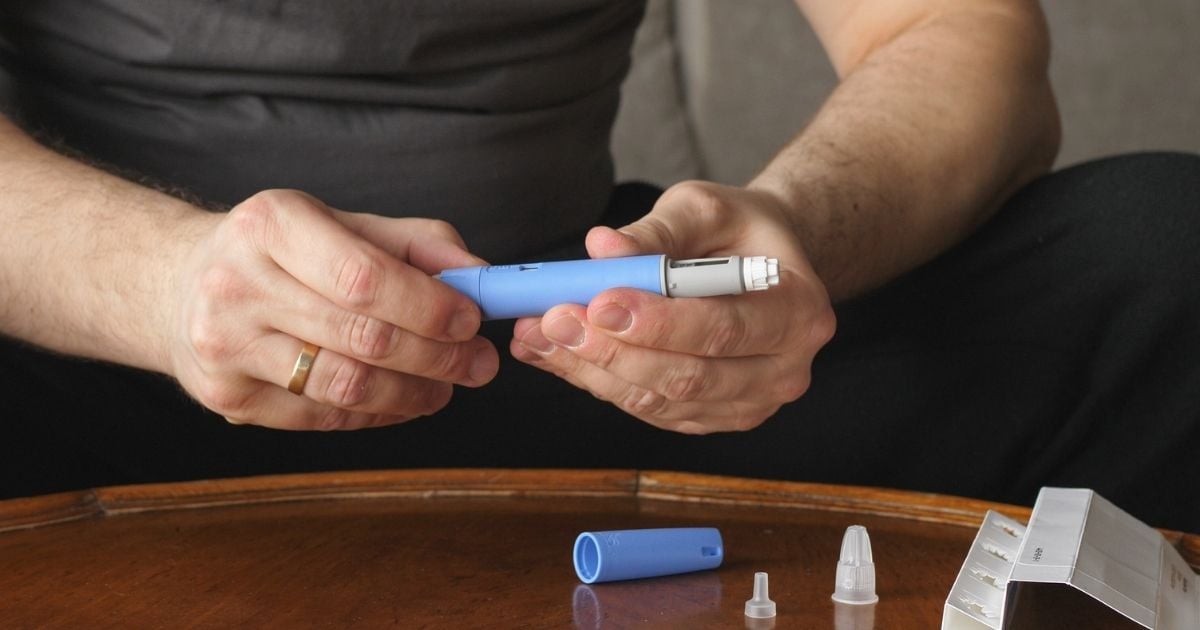As the popularity of Ozempic continues to rise, so do the questions surrounding its use, benefits, and potential side effects.
We have asked Endocrinologist Dr. Anne Peters, Director of the Clinical Diabetes Programs at Keck School of Medicine of USC, the most common questions about Ozempic from the Diabetes Strong community.

Table of Contents
- Are Ozempic and Wegovy the same drug? Can I switch between the two?
- Is Ozempic the most effective drug for weight loss?
- Will I have to stay on Ozempic forever, or can I stop after losing weight and getting my A1c down?
- What happens when you stop taking Ozempic?
- How common are Ozempic side effects?
- How can I avoid side effects?
- Can you have an allergic reaction to Ozempic?
- Who shouldn’t take Ozempic?
- How does Ozempic affect mental health?
- Can people with type 2 diabetes take Ozempic and Metformin together?
- Do you think Ozempic is helpful for people with type 1 diabetes who don’t need to lose weight?
Are Ozempic and Wegovy the same drug? Can I switch between the two?
Yes, they just come in different types of pens. The highest dose of Wegovy is slightly higher than the highest dose of Ozempic.
Dr. Anne Peters
Because Ozempic and Wegovy are the same drug (semaglutide), answers to the questions below are relevant for both brands.
Semaglutide works by mimicking the action of the hormone glucagon-like peptide 1 (GLP-1), which stimulates the pancreas to produce more insulin. More insulin helps sugar enter the cells, lowering blood sugar levels.
The main reason why semaglutide is effective in weight loss is that it increases the feeling of satiety and decreases appetite.
Is Ozempic the most effective drug for weight loss?
Semaglutide (Ozempic & Wegovy) is very effective for weight loss, but other options exist.
Trulicity (dulaglutide) at higher doses can help and so can Saxenda (liraglutide), but it is not as effective as semaglutide.
Tirezatide (Mounjaro/Zepbound) is more effective at weight loss and better for glucose lowering in people with type 2 diabetes.
Dr. Anne Peters
Studies have shown that people taking Ozempic experience an average weight loss of 10 to 15 percent.
In comparison, in clinical trials, people taking Tirezatide (Zepbound and Mounjaro) lost an average of 20 percent of their body weight.
Another difference between Ozempic and Tirezatide is that Ozempic is FDA-approved to reduce the risk of heart attack and stroke in people with type 2 diabetes, while Tirezatide is not.
Learn more in: Ozempic vs. Mounjaro: Which One Should You Choose?
Will I have to stay on Ozempic forever, or can I stop after losing weight and getting my A1c down?
You should stay on the medication as long as you see good results and tolerate it without side effects. The medication only works as long as you take it.
If your A1C and weight improves on Ozempic, you will probably need to stay on it to keep those results.
In some cases, you can gradually reduce the dose to see how you do. But don’t stop “cold turkey”—taper it off.
Dr. Anne Peters
What happens when you stop taking Ozempic?
If you have type 2 diabetes, your blood sugar increases. For others, their weight increases. Since it is a hormone, you lose its benefits when it is stopped.
Although there are other ways to try and keep weight off and blood sugars down, those can be harder to implement.
Dr. Anne Peters
Always consult with your doctor before stopping a prescription medication. You should have a plan in place for gradually reducing the dose and an alternative way of managing the condition the drug is treating.
How common are Ozempic side effects?
Unfortunately, Ozempic side effects are very common.
Dr. Anne Peters
The most common side effects of Ozempic include:
- Nausea
- Vomiting
- Diarrhea
- Abdominal pain
- Constipation
These common side effects are often only seen during the first few weeks after starting Ozempic and when increasing the dose.
Rare but serious Ozempic side effects include:
- Thyroid tumors
- Pancreatitis
- Changes in your vision.
- Hypoglycemia (low blood sugar).
- Worsened kidney issues and kidney failure.
- Serious allergic reactions.
If you experience side effects from using Ozempic, you are encouraged to report them to the FDA through their MedWatch program.
How can I avoid side effects?
Starting at a low dose and gradually increasing it can avoid or minimize many of the most common side effects.
Start at the lowest dose and increase gradually—there is no rush to get to the higher doses.
Do not increase the dose if you feel nausea, vomit, have diarrhea, constipation, excessive belching or heartburn caused by the Ozempic.
Let your body adjust to the lower dose. Sometimes it helps to take it only once every 10 – 14 days instead of weekly to even more gradually increase the dose.
Also, avoid high fat meals. The Ozempic will make you feel nauseated afterwards.
Dr. Anne Peters
Can you have an allergic reaction to Ozempic?
Yes. If that happens, tell your healthcare provider.
Allergic reactions generally start at the injection site and spread from there.
Dr. Anne Peters
Who shouldn’t take Ozempic?
Anyone with an allergic reaction to it, anyone with a personal or family history of medullary thyroid carcinoma or MEN syndrome (these are very rare and people generally know if they have had them), maybe people with unexplained pancreatitis.
People who are already lean and likely to lose too much weight.
People with gastroparesis.
It can cause gall stones (which is caused by weight loss) so people who are having gall bladder issues may not want to take it.
Dr. Anne Peters
Ozempic is also not recommended if you are pregnant, under 18 years old, or have a history of diabetic retinopathy, according to the Ozempic Safety Information.
How does Ozempic affect mental health?
It can reduce cravings and possibly help with a reduction in alcohol consumption. And losing weight can make people feel better about themselves.
There was some concern about an increase in suicide risk, but I don’t think that has proven true.
Dr. Anne Peters
Can people with type 2 diabetes take Ozempic and Metformin together?
Yes, you can take metformin and Ozempic together, although sometimes I cut the metformin dose in half to reduce gastrointestinal side effects.
Dr. Anne Peters
Do you think Ozempic is helpful for people with type 1 diabetes who don’t need to lose weight?
Yes and no.
Ozempic does not improve glucose levels in people who do not make insulin, like the “classic” person with T1D. However, some people with adult onset type 1 diabetes make insulin for a long time and they can respond to Ozempic in terms of improved glucose control.
But separate from glucose levels, Ozempic can help reduce the risk of cardiovascular disease, progression of kidney disease, possibly reduce rates of hospitalization requiring heart failure and may lower risk of stroke and even possibly dementia. These are called “nonglycemic” benefits.
However, lean people with T1D do not want to lose too much weight and become too thin. It is important to avoid losing lean body mass, so lower doses are often used.
Dr. Anne Peters





Jeff Eaton
Are there any new weight loss meds like Ozempic that won’t affect some one with kidney disease and one case pancreatitis in my life?
marika
i has to stop inject Ozempic, Bec its causes very bad pain in my liver area.
PaulDalton
I am regarded as obese with a BMI of 30+. I have type 2 diabetes and a fatty liver. I am already on Trulicity and was previously on Victosa. Would Ozempic make a significant change for me
Christel Oerum, MS
To get a meaningful answer you’d have to discuss that with your medical team.
Patricia Keating Patricia Keating
Interesting to hear from an Endocrinologist.
Inspire
Semaglutide is Ozempic and Wegovy, just different things. They both are great drugs to lose weight, and stopping them will revert all the effects after some months. Consult your doctor before changing anything—tapering is the key!
Elsa Guss
I take glipizide and netformin with ozempic and having digestion issues. Which of these meds can I cut back on
Christel Oerum, MS
This should be a discussion you have with your medical team. Don’t change your medication without discussing it with them.
M Mans
can ozempic be taken with high insulin levels
Christel Oerum, MS
This is something you’d have to discuss with your medical team